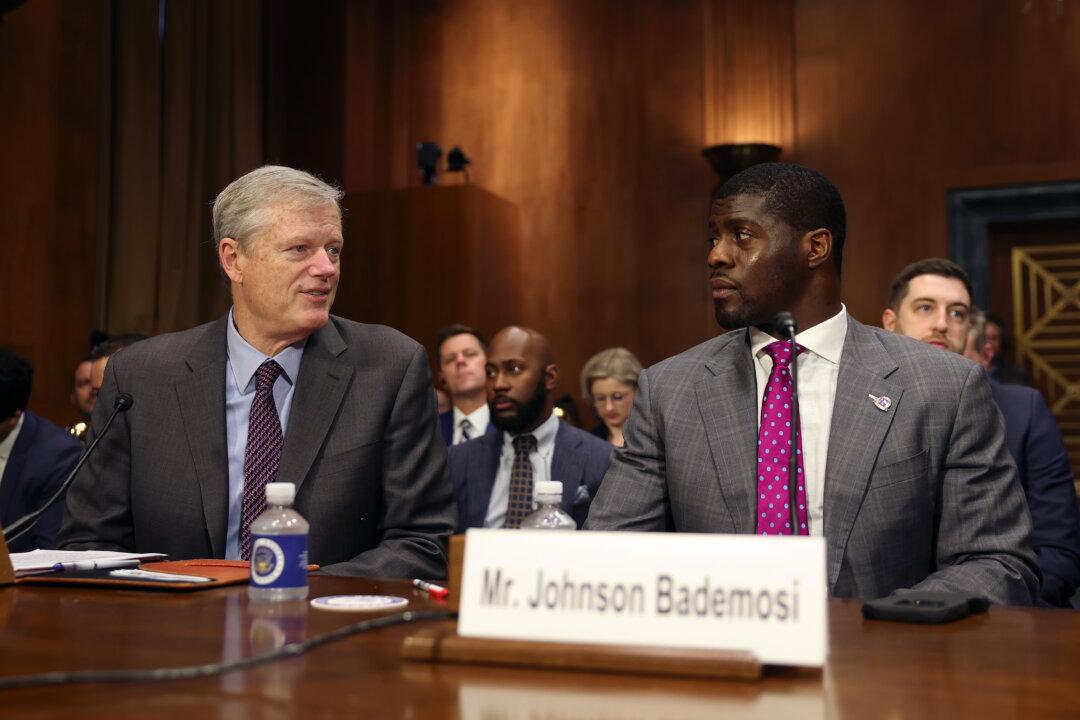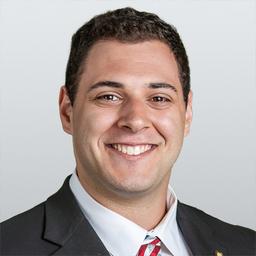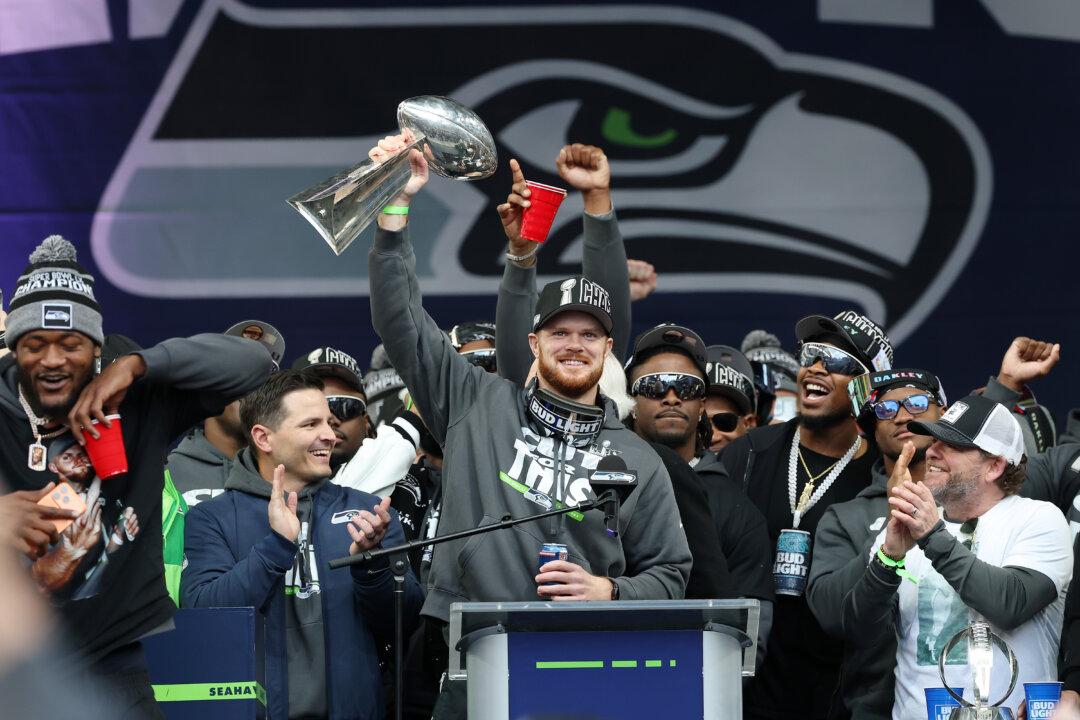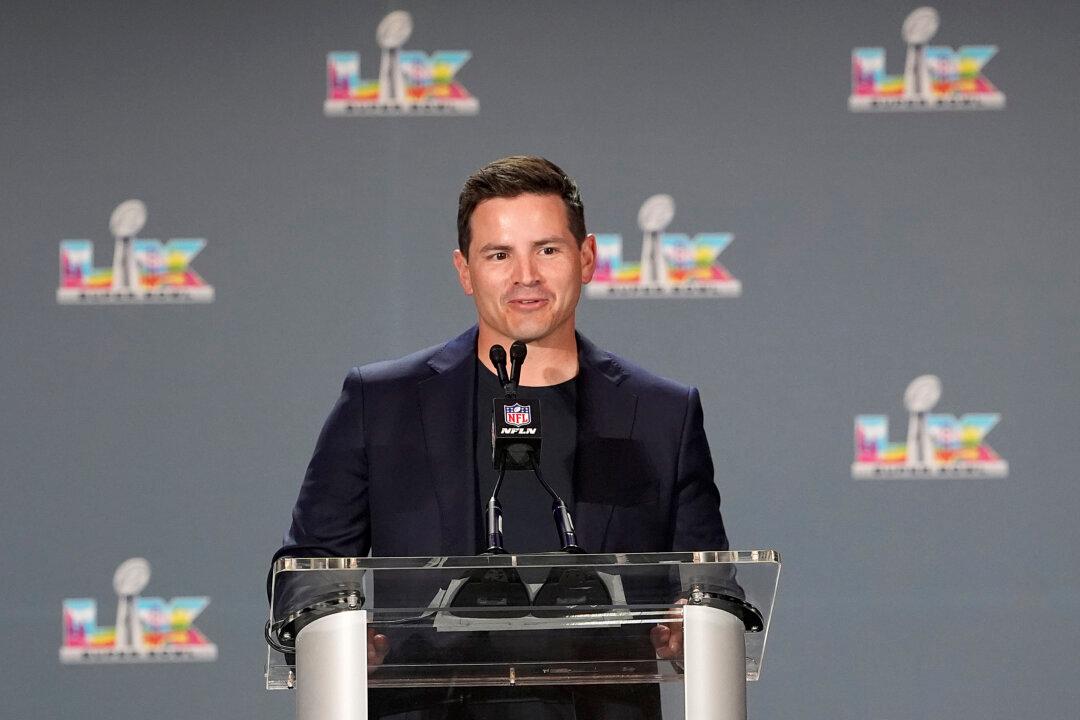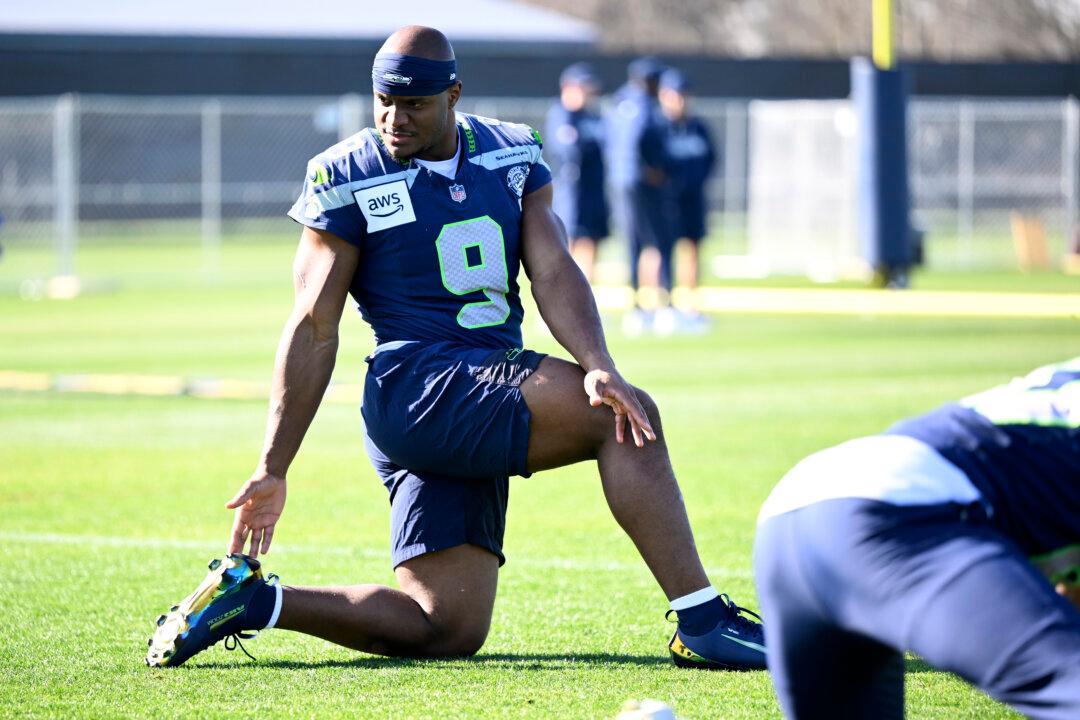Prompted by harassment of players by gambling fans, advocates for college and professional athletes appeared before a Senate committee on Dec. 17 to call for legislation that would rein in sports betting.
NCAA President Charlie Baker and NFL Players Association representative and former player Johnson Bademosi told the Senate Judiciary Committee about the negative consequences of sports betting on sports and athletes alike, and urged Congress to help protect athletes.
Bademosi, who played nine years as an NFL cornerback, spoke about gambling’s negative impacts on professional athletes. “Players have always had pressure to perform well for professional achievements and to win games, but sports betting has added a new and complex layer to this issue,” he said in his opening statement.
“Now, players are targeted by gamblers who pressure them to perform, not for the benefit of the team, but because the gambler is financially invested in a specific performance element of individual athletes. This has an overall negative effect on a player’s physical security and mental state of mind and has the likelihood to distract a player during the time where focus is needed on the field to avoid injury and to perform at the highest levels.”
Bademosi also pointed to several examples of players dealing with harassment and death threats from fans on social media: Buffalo Bills kicker Tyler Bass deleted his social media pages after receiving death threats from fans for missing a game-tying field goal in the Bills’ AFC Divisional Playoff loss to the Kansas City Chiefs in January. Minnesota Vikings wide receiver Justin Jefferson deleted his accounts last year after receiving harassment from fans who were upset with his statistical performance for their fantasy football teams.
Athletes already face immense pressure to perform at the highest level of a sport, said Bademosi, and they do not need the added stress of harassment and threats of harm due to “problematic gambling behavior.”
Bademosi also said that gambling has changed how fans engage with sports: While it has led to a deeper engagement with sports outside of their favorite teams, it has also contributed to further dehumanization of players into statistics in a sportsbook. He said that legalized sports betting has contributed to an increase in gambling addiction, particularly among young people.
Bademosi said players unions have supported state legislative actions to ban “proposition bets,” or prop bets, on injuries, penalties, player discipline, and other negative outcomes. They have also backed banning the use of player biometric data for gambling purposes, and requiring investigative bodies to notify players and players unions of sports betting conduct investigations. He urged Congress to consider these proposals in any potential legislation.
Baker pointed out that NCAA athletes are especially vulnerable to the consequences of sports betting, since they live on campuses with students who may be bettors. Baker pointed to NCAA survey results that found 67 percent of 18-to-22 year-olds on campus are bettors, and 41 percent of bettors have bet on their school’s teams. A separate survey found that 10 percent of Division 1 college administrators were aware of an athlete who had been harassed by a gambler. Baker said that in problem-gambling sessions on campus, one in three student-athletes in sports with high betting volume were harassed by gamblers.
Furthermore, an NCAA study of social media profiles of athletes and coaches playing in championship games found that 12 percent of online instances of abuse directed at those players were related to sports betting. In basketball and football alone, the rate of online abuse increased to 19 percent.
Baker also shared stories of harassment online from sports bettors. Former University of North Carolina forward Armando Bacot told reporters in March that he received over 100 angry messages from fans complaining he did not get enough rebounds during a March Madness game. Auburn University quarterback Payton Thorne said on a podcast in September that he often receives Venmo requests from angry bettors who lost money on his performance.
Baker went on to discuss the NCAA’s progress in reforming legal gambling on behalf of student-athletes. So far, Louisiana, Maryland, Ohio, and Vermont have banned prop bets on individual athletes at the college level, while North Carolina and New Jersey have introduced legislation to ban college-level prop bets. He also pointed out that state legislators in West Virginia, Ohio, New Mexico, Wyoming, and New Jersey have taken action to prevent harassment of athletes by bettors.
